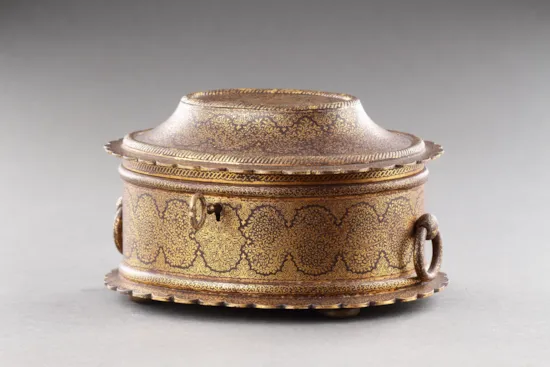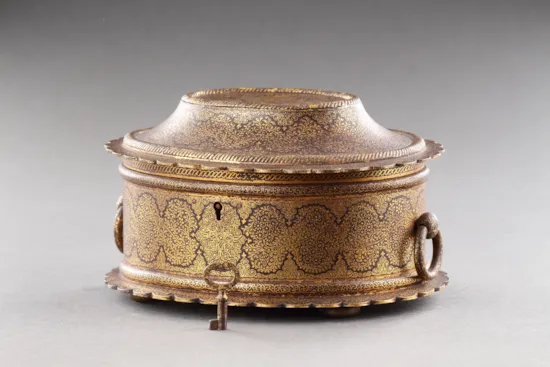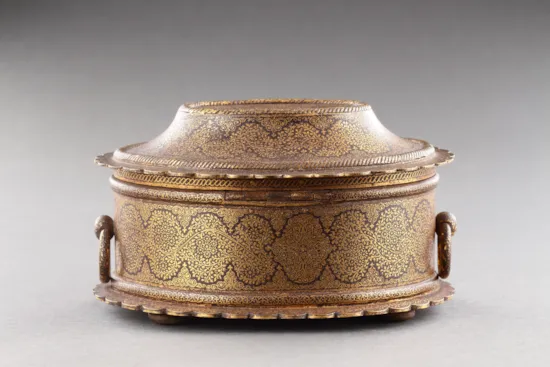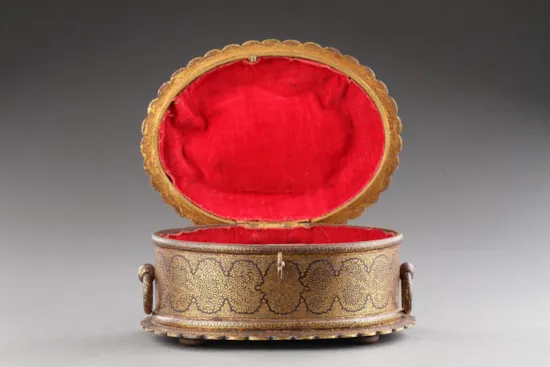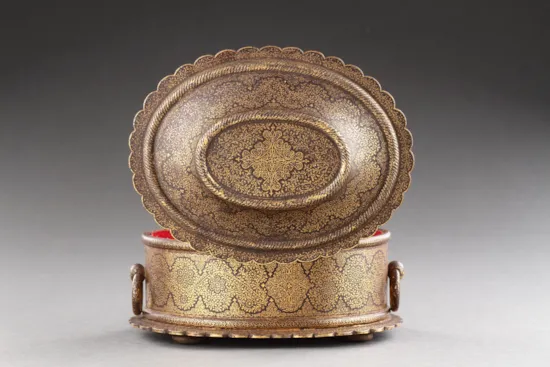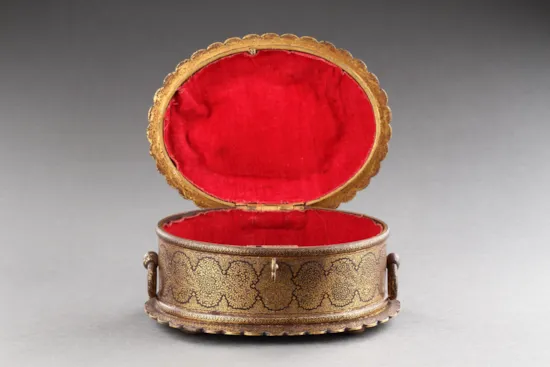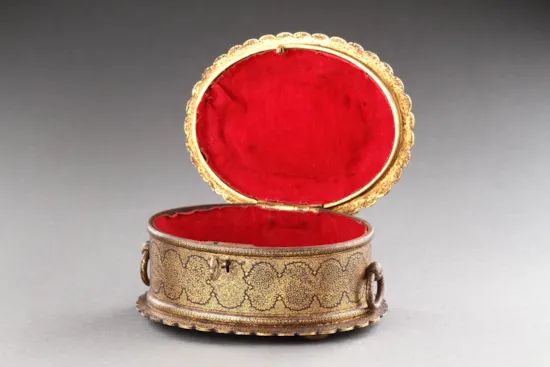Indian Rajasthan Iron Casket Decorated with Gold Damascene with Foliate and Tendril Designs in the Koftgari Technique of Oval Form
An Indian Rajasthan Iron Casket Decorated with Gold Damascene with Foliate and Tendril Designs in the Koftgari Technique of Oval Form
Two circular handles to each side velvet lined raised upon four iron bun feet
With original gilt decorated key
Mid 19th Century
Size: 9.5cm high, 17cm wide, 13.5cm deep - 3¾ ins high, 6¾ ins wide, 5¼ ins deep
Two circular handles to each side velvet lined raised upon four iron bun feet
With original gilt decorated key
Mid 19th Century
Size: 9.5cm high, 17cm wide, 13.5cm deep - 3¾ ins high, 6¾ ins wide, 5¼ ins deep
An Indian Rajasthan Iron Casket Decorated with Gold Damascene with Foliate and Tendril Designs in the Koftgari Technique of Oval Form
Two circular handles to each side velvet lined raised upon four iron bun feet
With original gilt decorated key
Mid 19th Century
Size: 9.5cm high, 17cm wide, 13.5cm deep - 3¾ ins high, 6¾ ins wide, 5¼ ins deep
Two circular handles to each side velvet lined raised upon four iron bun feet
With original gilt decorated key
Mid 19th Century
Size: 9.5cm high, 17cm wide, 13.5cm deep - 3¾ ins high, 6¾ ins wide, 5¼ ins deep
‘Koftgari’ or ‘Kuftkari’ is the technique in which a pattern traced onto iron or steel is inlaid with gold. It was traditionally used in the manufacture of weapons and armour, but after the annexation of the Punjab by the British in 1849 the production of arms was banned. The skilled artisan ‘Kuftkars’ quickly turned their attention to supplying the growing European demand for luxury domestic objects decorated with damascened gold or silver. However, the workshops did quietly continue their traditional art with weaponry albeit on a much reduced scale.
Ex Private English collection
Indian Rajasthan Iron Casket Decorated with Gold Damascene with Foliate and Tendril Designs in the Koftgari Technique of Oval Form
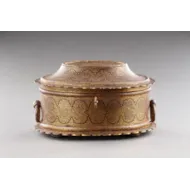
SOLD
